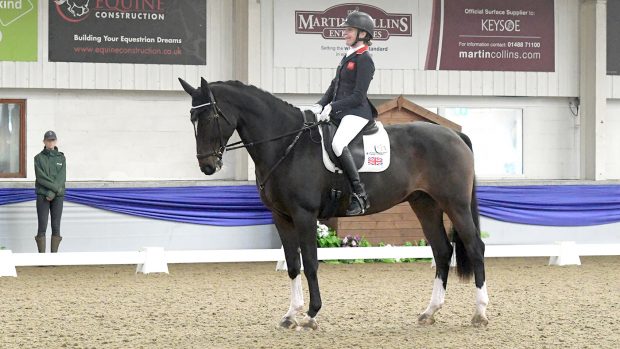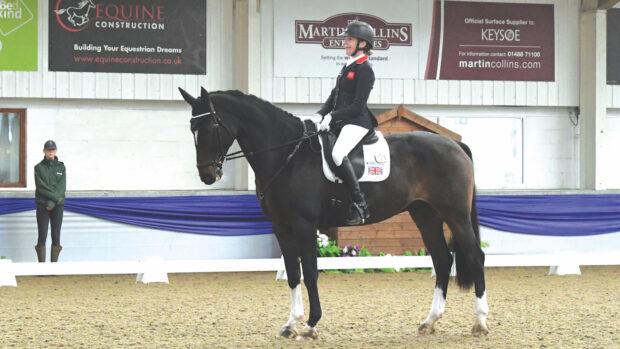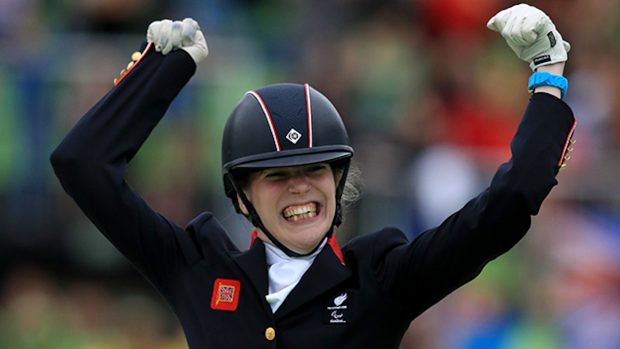A Paralympic dressage rider has called on the Government to do more for disabled individuals outside of sport.
Multiple gold-medal winning para dressage rider Sophie Christiansen, who works in London as a software developer and was selected for the Tokyo Games but ruled out by her ride Innuendo III suffering a “minor veterinary issue”, told H&H that although the current WeThe15 campaign, led by the International Paralympic Committee and the International Disability Alliance to initiate change for the world’s largest marginalised group, is “a good start”, she believes more could be done by the UK Government and businesses, such as employing disability officers in workplaces.
“We need to change the perception that if you’re disabled you want to be a Paralympian; not everyone wants to be an elite athlete and I think we need to focus away from sport,” she said.
“I want the Government to start enforcing the Equality Act. Businesses need to educate themselves on what would make them more accessible, from installing a ramp in a shop to using captions on videos on websites for deaf customers. I’ve gone to companies asking for change and sometimes they don’t even realise that they had a step to get in that I couldn’t get my wheelchair up. It’s about educating people on these simple things.
“There has been some amazing coverage around the Paralympic Games. While it means more people know about the Paralympics, it’s not being moved into actual changes for disabled people. We watch the amazing athletes doing incredible things, but that’s not enough. We need to celebrate these athletes and think about what we can do to make their lives better, whether it’s writing to your manager or chief executive to ask ‘is our workplace or shop accessible?’ and really highlighting the things your management won’t have thought about.”
FEI secretary general and president of the Association of Paralympic Sports Organisations Sabrina Ibáñez welcomed the WeThe15 campaign, which aims for better accessibility and inclusion.
But she added: “While sporting events like the Paralympics have the power to show the world just how much para athletes can achieve, there is a real need to shed light on the challenges that some of them face as they go about their daily lives.
“A change of social attitude towards people with disabilities is very much required if we are to tear down the barriers that currently prevent them from contributing fully to their communities.”
Jemima Croft, who is studying for a degree in equine science and management at Myerscough College, told H&H she agrees with Sophie that more needs to be done to support disabled people in the workplace.
“After the 2012 Paralympics took place there was a lot of talk about disabilities and the whole country rallied behind it, but very quickly after it just levelled off. In the 10 years I’ve been disabled I haven’t seen a change,” she said. “The WeThe15 campaign is brilliant in the sense that it is promoting solidarity and raising awareness but not everyone is a Paralympian. We need to address the fact that there are disabled people who aren’t superheroes, they’re ordinary people who want to have a job, go to work and have that accessibility.
“I’ve had to fight to get an education, let alone a job. As a society we need to get rid of the system barriers that are preventing disabled people reaching their full potential, particularly in the workplace.
“I have to do things other people wouldn’t have to consider and really jump at every opportunity to add to my CV because I can’t just go to a job interview and say, ‘I can work with horses, give me a job’ – employers will say, ‘Well, you’re in a wheelchair.’ I need to have that evidence on my CV that I can do the things I say I can as an employer won’t just take my word for it.”
In July the Government launched the National Disability Strategy, which sets out actions the Government will take to improve the everyday lives of all disabled people, including easier commuting and better job prospects.
Prime Minister Boris Johnson said although progress has been made in some areas, such as more housing becoming accessible, “we can and must do better”.
“Which is what this strategy is all about,” he said. “It sees departments and agencies in every corner of Government setting out how they will do their bit to bring about the practical and lasting change that will make a material difference to the lives of disabled people across our country.”
Kamran Mallick, chief executive of charity Disability Rights UK, said the strategy is “disappointingly thin” on immediate actions, medium-term plans and details of longer term investment.
“The strategy has insufficient concrete measures to address the current inequalities that disabled people experience in living standards and life chances,” he said. “While we welcome the Government’s recognition that disabled people are less likely than non-disabled people to have a job, qualifications, own a home or live in an accessible home, we haven’t been given the bold plans that will fix these huge issues.”.
You might also be interested in:
Horse & Hound magazine, out every Thursday, is packed with all the latest news and reports, as well as interviews, specials, nostalgia, vet and training advice. Find how you can enjoy the magazine delivered to your door every week, plus options to upgrade your subscription to access our online service that brings you breaking news and reports as well as other benefits.




